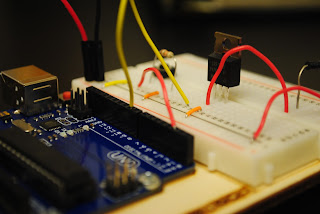Is Intelligence Inherently Fixed?
Whenever I think about where I am today I consider how I have had to change my learning style over the years. From about 1st grade to my senior year of high school, I never really put a large amount of effort into my studies. That's not to say I didn't care about school, but earning A's and making the dean's list was pretty par for the course. Knowing what I know now, I would say I was subscribing to the traditional model for effort and intelligence as described by Carol Dweck. This model often rewards students who do work with little or no effort and declares that as a benchmark for intelligence. While the self-congratulatory aspect was appealing to my ego at the time, it all really fell apart as I got into college. There were challenges aplenty in higher education, and at that time I took these challenges as a contradiction to my intelligence and as a reason for me to consider the "the easy way" out on assignments. I didn't know it at the time, but my feelings correlate with a "fixed" mindset of learning. In line with the "Students’ Mindsets for Learning and Their Neural Underpinnings", I was lacking in my own, "self-efficacy, (and I was more prone to) give up more easily and adopt maladaptive strategies". Thankfully, there was still time for me to change my mindset, and thanks to a lot of mentors in my college I finally focused on the bigger picture. Shifting to an “incremental” mindset helps me put into perspective how much I've already done, and visualize how much more I can do if I challenged myself. Three years later, I haven't really looked back at the old mindset, and I couldn't be happier in school!
I think for anyone doing education to enter a career or to pursue a career in education itself, reading the articles by Tirri, Good, and Mangels, along with the Ted Talk by Dweck will do a world of wonders!


Comments
Post a Comment